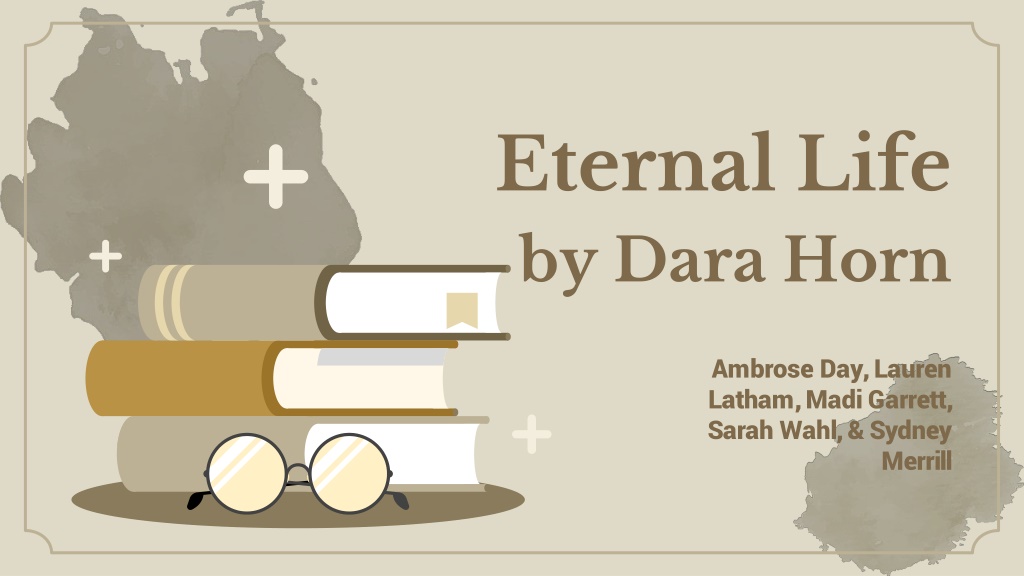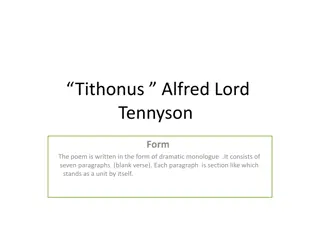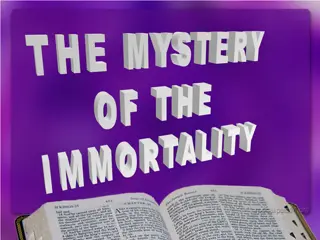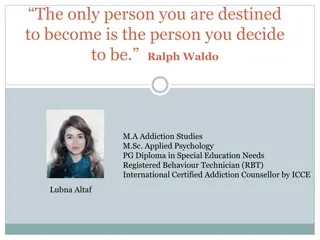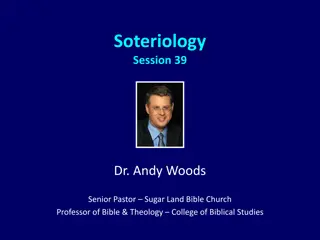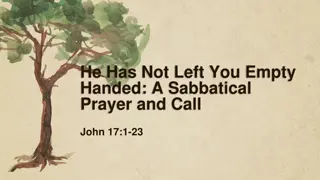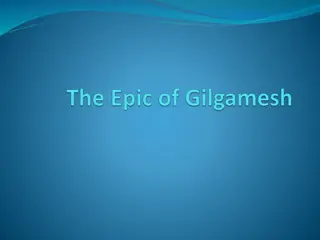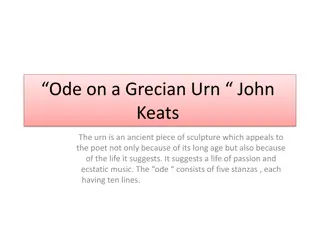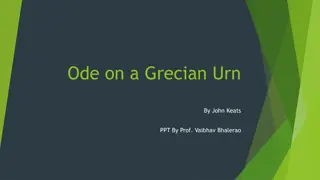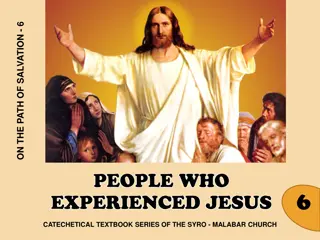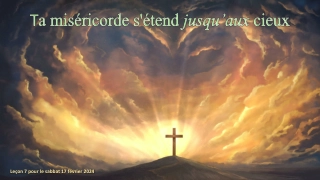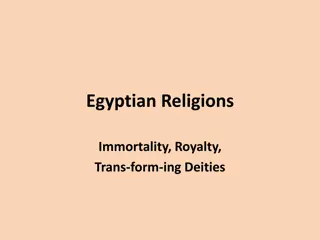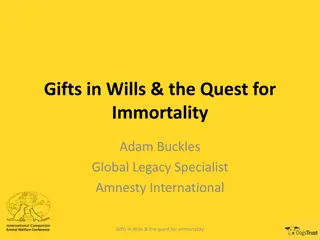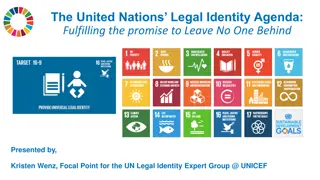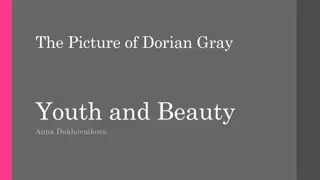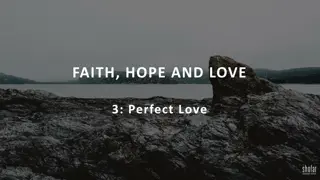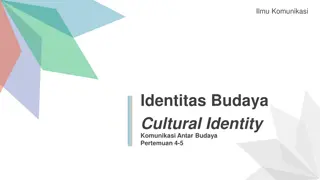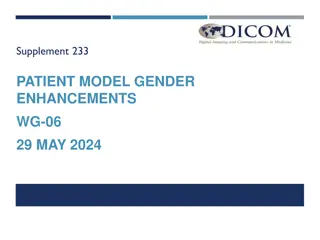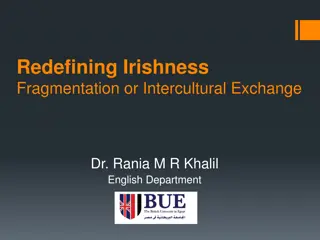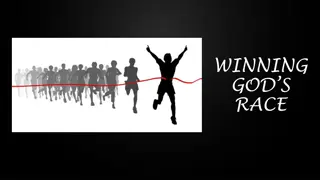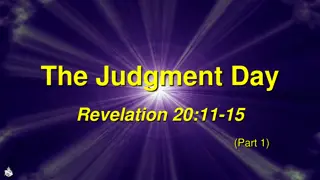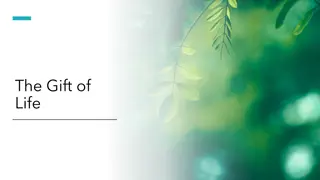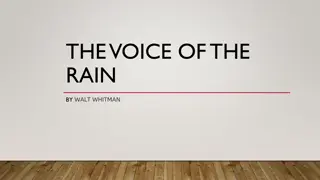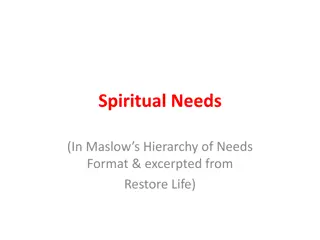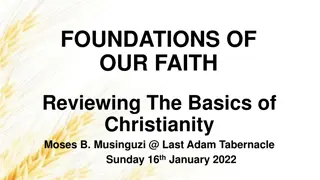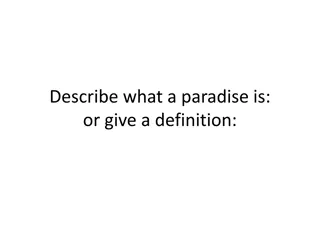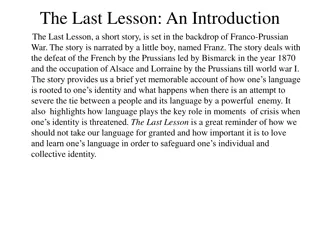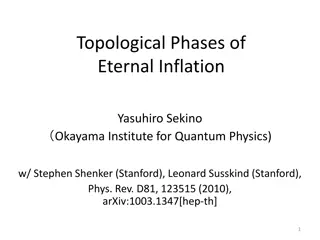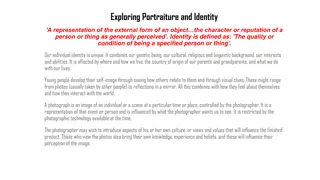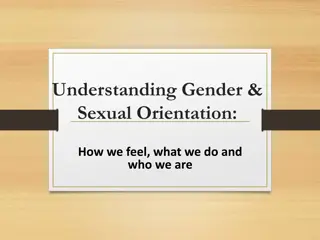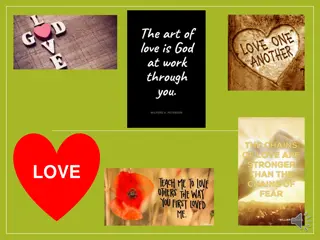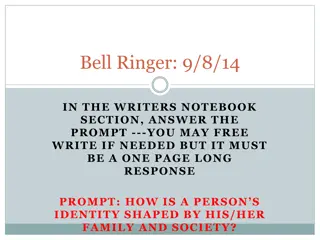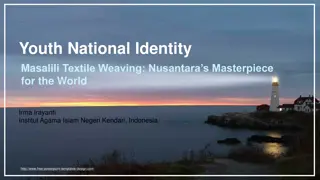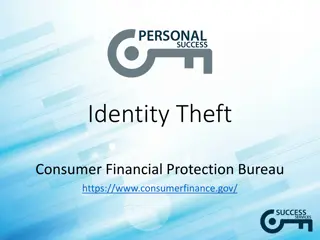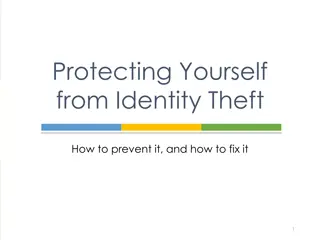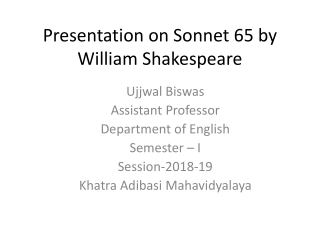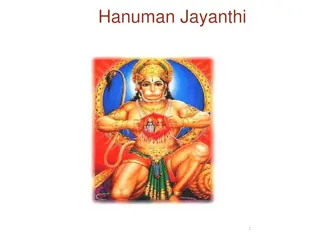Eternal Life by Dara Horn: Immortality, Love, and Identity Explored
Eternal Life by Dara Horn delves into the intertwined lives of Rachel, Elazar, and their descendants, who are blessed or cursed with immortality. The novel explores themes of love, sacrifice, and identity across various time periods, blending historical events with a touch of fantasy. Through rich character development and intricate plot twists, Dara Horn challenges readers to reflect on the complexities of eternal life and its impact on relationships and personal growth.
Download Presentation

Please find below an Image/Link to download the presentation.
The content on the website is provided AS IS for your information and personal use only. It may not be sold, licensed, or shared on other websites without obtaining consent from the author. Download presentation by click this link. If you encounter any issues during the download, it is possible that the publisher has removed the file from their server.
E N D
Presentation Transcript
Eternal Life by Dara Horn Ambrose Day, Lauren Latham, Madi Garrett, Sarah Wahl, & Sydney Merrill
Table of Contents 01. 03. Let s Refresh! Discussion What s happening? Who are the main characters? What stood out to you? Literary Themes 02. 04. Judaism in the Novel Key Takeaways Historical references you might have missed Impressions? Thoughts? 05. Conclusions Final statements
01 Let s Refresh!
Main Characters Rachel Elazar Hannah Rocky Son of high priest, madly in love with Rachel, biological father of Yochanan, cannot die Granddaughter of Rachel, genetics researcher, wishes to discover immortality through Rachel Son of Rachel, token troublemaker, Bitcoin lover, modern version of Yochanan Daughter of a scribe, mother of Yochanan, in love with Elazar, cannot die
Plot Overview Rachel and Elazar fall in love and have Yochanan via infidelity They take a vow of immortality to save Yochanan from illness The temple is destroyed but Yochanan saves the Torah before dying of old age Rachel and Elazar find each other in their second lives, marry, and discover they cannot have children together
Plot Overview Rachel leaves and begins a string of marriages and families, still in love with Elazar Elazar adapts to modernity while Rachel remains traditional Against Rachel s wishes, Elazar continues to pop up in her life Rachel s granddaughter wants to research her because of her young appearance, but Rachel denies her
Plot Overview Hannah steals Rachel s DNA, Rachel tells Hannah that she is immortal, and agrees to be researched Rachel discovers her house on fire and sacrifices herself to save Hannah s child
Judaism in the Novel: Things you might have missed 02 Early 20th century Fleeing Poland (p. 12) 90 CE Yochanan death (p. 207) 628 CE Byzantium (p. 127) 489 CE Antioch and Synagogue Burning (p. 99) 70 CE Siege of Jerusalem and Burning of Temple (p.199-205) 30 BCE Yochanan birth (p. 62) 1975-1990 Lebanon War (p. 117) 681 CE Spain Forced Conversion (p. 128) 1967Six Days War and Western Wall (p. 13) 1990-Present Owning Business, Cryptocurrency Jewish persecution extends beyond the Holocaust. Jewish tradition includes shared religious practices and a shared ethnic history. There is a 1,000 year gap in the novel; I will drop a link in the chat.
Judaism Quick Check! Significance of Temple, Torah, God Judaism: Culture, Heritage, and Faith Persecution and Stereotypes Synagogues, Scrolls, Vows, Priests, Scribes Yochanan actual quotes (195) If you re planting a tree and someone says to you, The Messiah just arrived, Rachel once heard him teach, finish planting the tree and then go greet the Messiah. Do you have any historical questions or feedback that you would like to share?
03 Discussion Questions worth talking about
Discussion Question What is Rachel searching for throughout the novel? She explains that it hurts her to continuously raise children and watch them die. So when she and Elazar failed to have more children together, why did she leave him? Why does she keep coming back? What does Rachel want; is it as simple as death?
Discussion Question Everything involved elaborate rituals, and familiar rituals too: the intricate purifications of specially designed vessels, the delicately worded vows she had to sign, the elite caste of select people imbued with arcane knowledge, the consulting of body parts as oracles, the long silent waiting for judgement, the obsessiveness involving blood. (p. 212, comparing lab to a temple). What is the role of figurative language in this novel? How does the use of analogies and metaphors inform us about Rachel s past, religion, and inner thoughts and beliefs? How does figurative language play a role in the author s storytelling?
Discussion Question Throughout the novel, Rachel refers to herself as something other than human. In Chapter 10 (page 131), she states that children get to be blessings, gifts, burdens, even, occasionally people. What does she mean by this? How does this help us understand the way she views the world, or life?
Discussion Question In Eternal Life, Rachel is able to restart her life when she dies. Is Rachel the same when she starts anew? Do her actions change from life to life? Do you see any similarities between the different periods of her life?
Many days and years and people had passed before she understood that the details themselves were the still and sacred things, that there was nothing else, that the curtain of daily life itself was holy, that behind it was only a void. Meaningful Quotes Then there were other reasons for living too, ones that mortals rarely thought of but that raged like fires in Rachel s mind: To correct mistakes. To avoid regret. To accept regret. To change. That s the problem. We don t grow. We re like an old book, full of stories and also full of errors, and no one can completely understand us, even though many people try. But the problem is that we don t change. Only the people around us change. Eventually Honi asked God to kill him, because he realized he had become superfluous. Which in fact was the entire purpose of life, to live in such a way that one made oneself superfluous. And therein lay the root of the problem. There was no point in any of it, none at all, unless one had plans to leave. No one had any idea of how thick a layer of arbitrary conventions enshrouded a naked soul. Maybe it s still worth it to me, even if it doesn t last forever, he said. Maybe you re still worth it to me.
Did you highlight any specific quotes or passages from the novel? Feel free to share!
04 Key Takeaways Lessons learned from reading the novel-Sarah
The past connects to the present, history repeats itself Throughout the novel, we are able to see the connections between Rachel s past and her present day, especially in the treatment of Jewish people. Rachel sees everything, starting with the burning of the second temple to Jewish people being harassed in modern day. We get to see how the story lives on even after the temple is burned. This also ties into how throughout time Rachel had named her kids after kids earlier in her lifetime. Just overall, the past and the present are tied together.
Life is meaningless without death. Rachel s daughter Hannah says something like this at the very end of Eternal Life. Throughout the whole novel, we see Rachel s past leading to present day for her. We see how she has lived and experienced death in many other ways except for herself. I think this meaning is a better representation of any mortal character/reader. We all will die in the end, so why not live life to the fullest until that day comes. For Rachel, the closest she has is starting anew, which has still given her life meaning.
Taking responsibility sometimes means losing control. Rachel has to forever live with the decision she made back when she was younger. She had control, but lost it when she gave away her death. Rachel tries to gain control back when she is asking Hannah to help her die. In the end, it doesn't work out and Rachel starts anew once more. Rachel loved and cared for Yochanan so much that she stepped up to make sure he would stay alive. She now has lost something very important, her death, but has continued to live on and make the most of her situation even though she no longer has some control over her life.
Love transcends time We can see this theme throughout the novel in different ways. Elazar always came back to Rachel throughout all the years they were gone. At the end of the novel, Elazar and Rachel aren t together but it allows her to love him even not while in a relationship. We can also see the love Rachel has for her children. She wanted Yochanan to live and gave up her death for him. We also see throughout time that Rachel has named her children after previous ones in her life.
05 Conclusions Final thoughts and audience questions
Conclusions Significance Themes How do the themes affect the what we gain? What insight do we gain about identity? Goals Connections How was the author able to bring this story to readers of different What connections do we take away as readers in our own life? groups?
